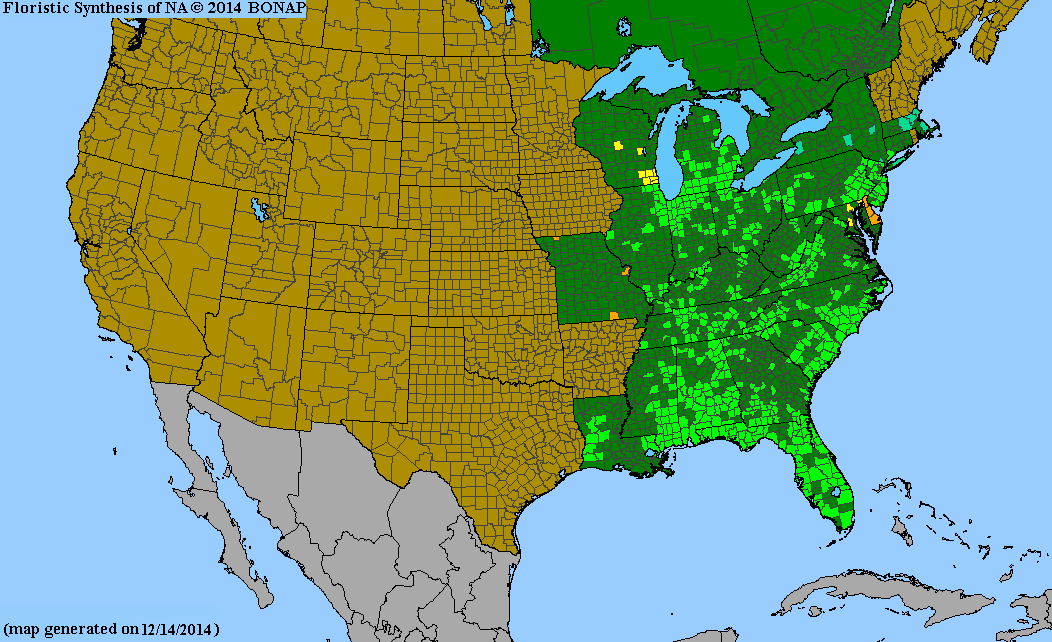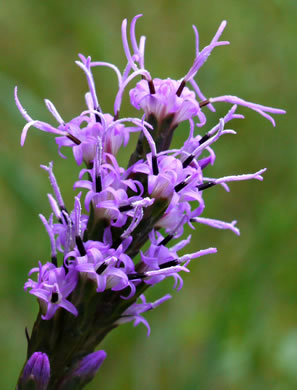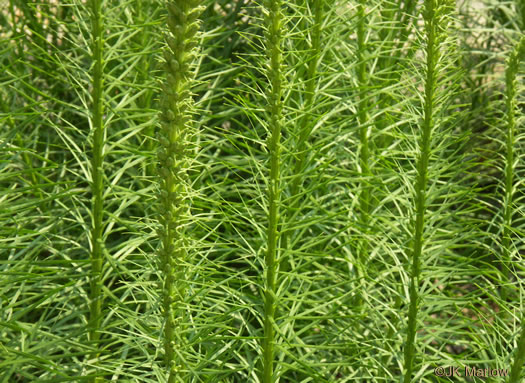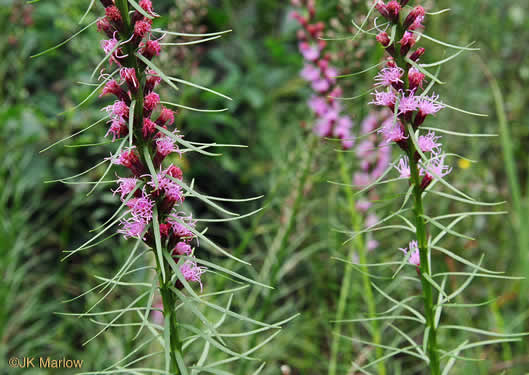Asteraceae
dense blazing-star
Liatris spicata
Synonyms
Liatris spicata var. spicata
Laciniaria spicata
Other Common Names
mountain blazing-star, florist's gayfeather, dense gayfeather
Plant Type
Herbaceous Wildflower
Life Cycle
Perennial
Typical Size
2-6 ft. tall
.5-1.5 ft. wide
Tolerant of
Deer, Occasional Flooding
Propagation
By seed
Plant Propagation Notes
New colonies can be produced from its corms but seed is more common. Scarified seeds may be sown outside in late fall or stored, stratified 3 months at 40 degrees F), and sown the following spring. Wait until the flower heads on the entire stalk have turned fluffy tan before collecting seed.
Plant Planting Notes
Dense blazing star is attractive in mass plantings in a pollinator garden, perennial border, native plant garden, or cottage garden. Suitable for rain gardens. Taller stems may require staking.
Wildlife Benefits
Nectar/pollen source for pollinating insects, Nectar source for hummingbirds
Leaves
The basal clump of alternate, narrow deep green leaves with a strong central vein are up to 12 inches long and 1/3 inch wide. Leaves grow smaller as they ascend the flower stalk. They are glabrous to sparsely hairy. Margins are entire.
Flowers
6-12 inch long flower spikes are densely packed with stemless flowers in purple, pink or white that bloom from the top down. Some cultivars have red flowers. Individual flowers contain 4 to 10 disks florets (no ray florets), are 1/3- 1/2 inch across with an exserted style.
Fruit
Cypselae (a type of achene) with stiff light brown bristles in fall.
Toxicity
No known toxicity.

USDA Hardiness Zones
3, 4, 5, 6, 7, 8
Light Exposure
Full Sun
Soil Moisture
Moist
Soil Drainage
Well-drained
Soil pH
Acidic (less than 6.0), Neutral (6.0-8.0)
Native in South Carolina?
Yes
Plant Native Habitat
Prairies (calcareous), roadsides, seepages, bogs, and grassy balds.
Global Conservation Status (NatureServe)
Secure (G5)
Federal Conservation Status (USFWS)
Not Listed
Distribution Notes
Within SC, dense blazing star is absent in the Coastal Plain, rare in the Piedmont, and rare in the Mountains.



